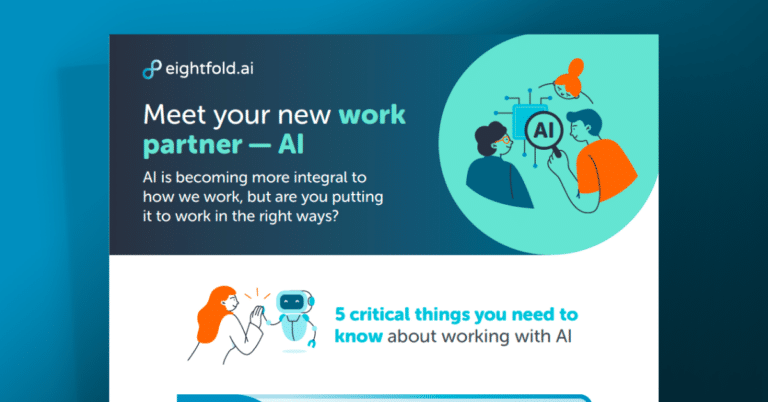
Meet your new work partner — AI
Meet your new work partner — AI
AI gives us the potential to impact our workforce in multiple ways, from reshaping traditional roles to transforming productivity. It should be viewed as a future partner—not a replacement.
Incorporating AI into your organization needs the right strategy and requires accountability. You can learn more in our e-book, The impact of AI on the future of work.
5 critical things you need to know about working with AI
AI is becoming more integral to how we work, but are you putting it to work in the right ways?
1. How AI will impact the workforce
GenAI will have multiple effects on work and the economy, including the potential to reshape traditional roles, create new job opportunities, and transform productivity.
2. How AI will impact jobs
Investing in advanced AI capabilities and complementary infrastructure can steer labor market effects in a positive direction.
3. AI is your future partner, not replacement
The power of AI lies not in replacing workers, but in augmenting and enhancing the unique strengths that people possess.
4. How to incorporate AI into your organization
It’s not a question of whether to implement AI. It’s a question of the best strategy to do it as soon as possible, while preparing both your organization and employees.
5. How to advance AI responsibly
With great technological advancements, like AI, comes great responsibility. Ensuring diversity and mitigating bias are important, while taking a wider view to include educating workers and organizational accountability.
You might also like...
Get the latest talent news in your inbox every month
By submitting this form, I consent to Eightfold processing my personal data in accordance with its Privacy Notice and agree to receive marketing emails from Eightfold about its products and events. I acknowledge that I can unsubscribe or update my preferences at any time.
